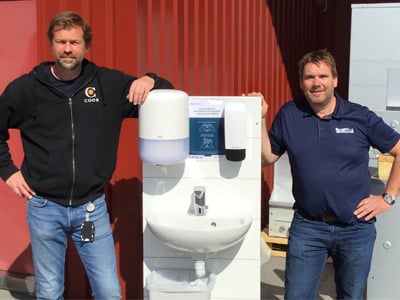Working with the customer experience is a mindset – not a project
According to Joachim, an important piece of the puzzle in working with CX is to understand, empathize and start from the customer´s perspective. You should not assume what you think the customer thinks about you, but instead attempt to truly understand the underlying needs or challenges that the customer faces. Many companies often settle for the question of WHAT the customers are happy or unhappy about, instead of analyzing deeply into WHY? The ambition is not only to enable your customers to get what they need, but also to simplify the way they get it and ultimately to positively engage them on an emotional level while getting it. To accomplish that you need to take a holistic perspective on the experience, all from the product, the physical and or digital setting, the actions performed by the customer, the human interactions and not least all behind-the-scenes activities.
Building capabilities to work successfully with the customer experience should not be considered as a temporary project. It is a cultural journey and a mindset that must permeate all activities of a company, and it takes considerable time and effort to get there. It is also not easy; things can come up about your company which may feel difficult to face up to. It is therefore important to dare to take responsibility for the whole experience, only then can you achieve a real change in the eyes, minds and hearts of your customers.
Joachim also points out that CX should be seen as a broader tool for business development and innovation rather than just an expensive cost-increasing activity for those companies who already enjoy high margins. If you approach it as such, then you have a change to succeed well with your customer experience.
Measuring HOW people experience FM services will be crucial in the future
When Joachim talks about the future of CX, he is discussing the fundamental changes in the economy which are taking place right now as we are moving more and more towards the experience economy. You are not inclined to pay extra for some random coffee beans, but if those coffee beans are sourced from a fair-trade certified farm in Nicaragua, then slow-roasted locally and finally brewed by the local Barista champion in a clean and warm reception area, then it is a completely different story. The competition for products and services today is fierce, but if you succeed with creating a good experience, you will at least come out of the price pressure.
The traditional business metric focus is also evolving
– Historically, it has always been important to measure efficiency and productivity. However, the focus on SLA (Service Level Agreement) compliance is by some companies beginning to be complemented by XLAs (Experience Level Agreements). Instead of just measuring and following up on efficiency and productivity, you continually measure, for example, HOW do people experience the office coffee and cleaning services and WHY do they think and feel this? That insight translated in to actions for what you do with it could possibly have a big impact on your ability to sell more, attract new customers, and become an attractive employer says Joachim.



